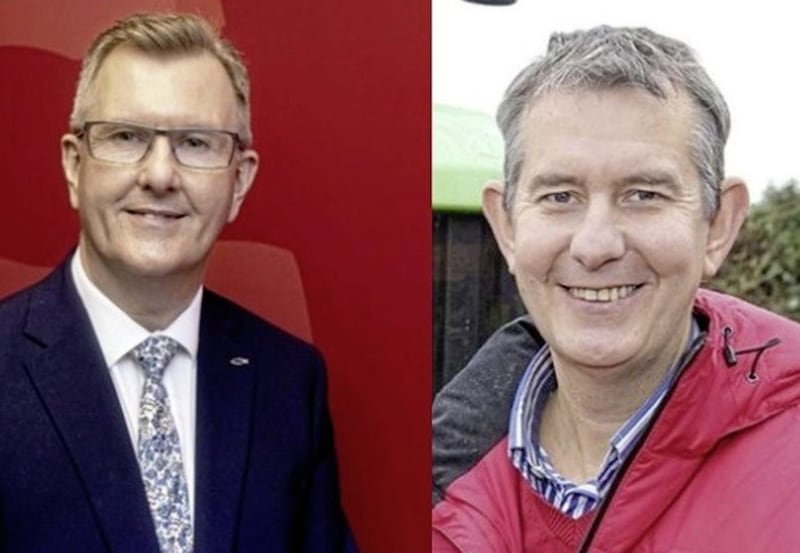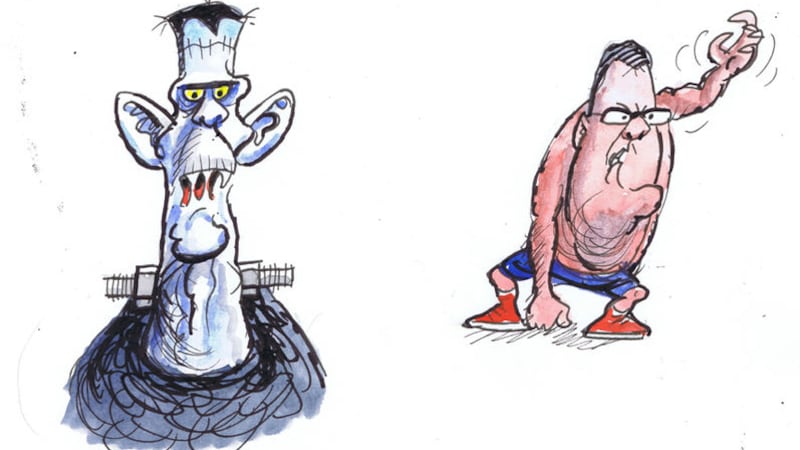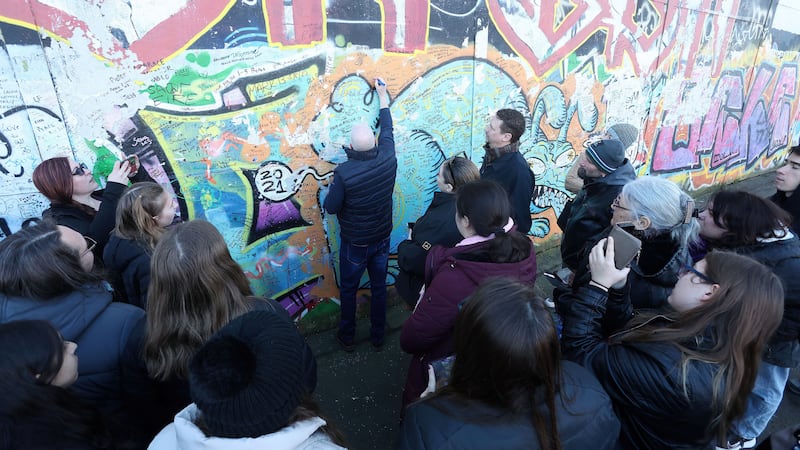LATER today the result of the DUP leadership contest will be announced. After campaigning for barely a fortnight to win support from an electoral college of 27 and seven other MLAs and MPs respectively, the two contenders will find out whether the various public endorsements and private pledges of support translated into enough votes to secure them the big prize.
We will also learn who has been the successful deputy leadership candidate in a three-way contest between Paula Bradley, Gregory Campbell and Paul Frew.
Today therefore marks the beginning of a new chapter for the DUP, a party founded 50 years ago on the principles of protest and Christian fundamentalism, which moved in its latter guise towards the mainstream, eclipsing its once dominant unionist rival at the polls and becoming the north's biggest political force.
When Peter Robinson handed power to Arlene Foster at the beginning of 2016, the DUP's place as Stormont's top dog looked assured for years, possibly decades.
The party had 38 MLAs and commanded an almost 30 per cent vote share. Nationalism had lost its mojo, appeased by the post-Good Friday Agreement institutions and becoming increasingly comfortable with the status quo.
What happened in the intervening years has been well documented. Hubris, arrogance, dogma and naivety, both collectively and individually, precipitated a series of decisions that undermined the DUP's reputation as a safe pair of hands and ultimately threatened its position as the north's largest party. Events played a part, but much of the damage was self-inflicted.
When you couple this series of blunders with a rapidly transforming social landscape in which voters are increasingly secular and progressive, it represents a crisis for political unionism, and the DUP in particular, which has a substantial reactionary element that has been accustomed to shaping policy to reflect their beliefs and aspirations rather than the electorate's.
Also feeding into this destablising mix is the unpredictable behaviour of Boris Johnson's government, the growing potential for Scottish independence and the precedent set by Westminster's imposition of legislation on same-sex marriage and abortion. The outlook for political unionism in its current form is uncertain and unsteady.
The consensus among observers is that unionism needs a reboot. What's needed, if the spate of self-harm is to end, is a strategy of inclusiveness and moderation, an approach that doesn't sell the union on the basis of a sense of entitlement or cultural supremacy but makes sound arguments about diversity, economic benefits and a health service free at the point of use.
The challenge is privately acknowledged but recognising the solution and steering the party in the direction of reform is more difficult. The DUP is small organisationally compared to the size of its vote, its representatives drawn from a narrow demographic that doesn't wholly reflect the breadth of support it gets at the polls. The party's MLAs and MPs have their particular world view, which is often reinforced by the parochial and insular circle in which they operate.
The contest between Sir Jeffrey Donaldson and Edwin Poots is portrayed as a battle over the future direction of the DUP.
The Lagan Valley MP, a former Ulster Unionist, is cast as the moderate and the one who best represents continuity from Arlene Foster.
The agriculture minister has surrounded himself with a group of MLAs that mirror his own views, both religious and political.
While Mr Poots' pragmatism and willingness to work as a minister with political opponents has been cited often over recent weeks, the message sent out during his campaign has been one of taking a hardline on the protocol and Sinn Féin.
Yet the final days of the campaign are playing out predictability, with an apparent, albeit unattributed, pledge by Sir Jeffrey to escalate opposition to the protocol by boycotting north-south engagement.
The claim that this will lead to others collapsing the institutions is ill thought out sabre rattling and based on the same kind of ill-informed logic that argued Brexit would benefit Northern Ireland.
The difference between the two leadership candidates is arguably overplayed, with the only marked differences being in personality and style.
The next chapter for the DUP may not be the closing one, but it will likely feature greater contraction and subsequent soul searching. When a party invests so much in conservatism and self-righteous determination, change becomes almost impossible.









